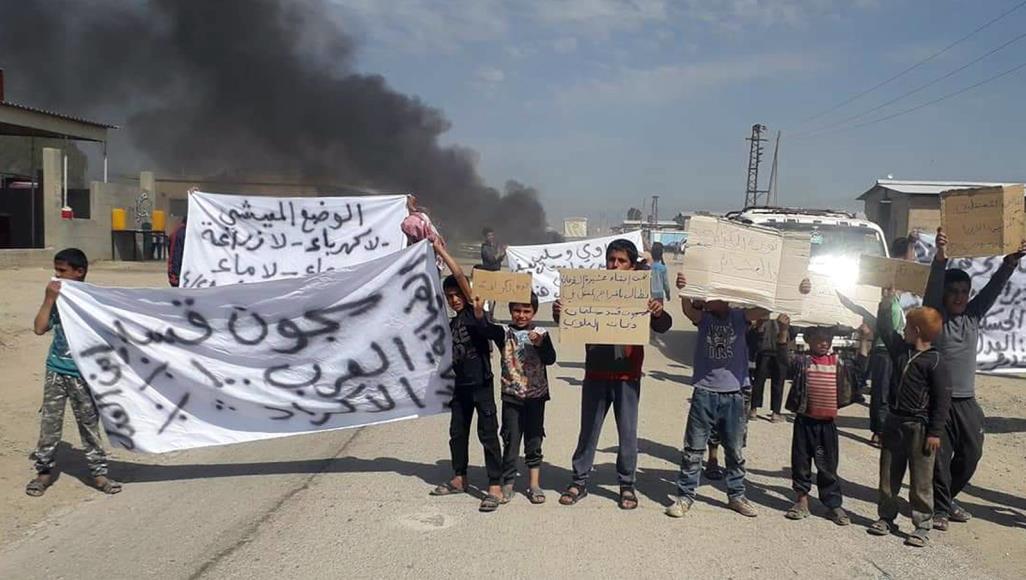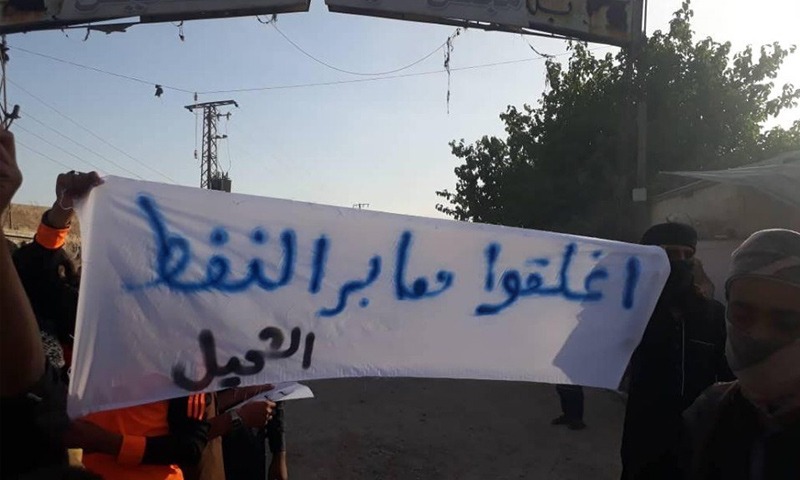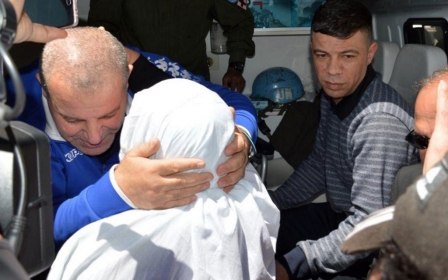Syrians in Deir Ezzor protest against SDF oil sales to Assad government

Civilians in Kurdish-controlled parts of eastern Syria's Deir Ezzor province have vowed to continue protesting against fuel price hikes and the US-backed Syrian Democratic Forces (SDF) militia's sale of oil to the Syrian government.
Images sent to Middle East Eye showed demonstrators holding banners describing President Bashar al-Assad's government and the SDF as "partners in crime", as protests spread across villages held by the Kurdish-dominated militia.
The protests began in late April in villages across northeastern Syria and spread to areas where most of Syria's oil fields are located.
Local Syrians who spoke to MEE voiced criticism and concern over what they describes as growing insecurity in Deir Ezzor and discrimination levied against the area's Arab inhabitants, who are in the majority.
Stay informed with MEE's newsletters
Sign up to get the latest alerts, insights and analysis, starting with Turkey Unpacked
Dahaam al-Sayed, a 34-year-old protester, said he decided to demonstrate to oppose the SDF's "growing tyranny" and discrimination towards Arabs.
"They have always been like this, and we thought that once the fight against [the Islamic State group] was over they'd change, work for the people and make our lives easier, " Sayed told MEE.
"But instead, they turned their anger towards us when they defeated [IS]. They are stealing our land's oil and taking it to their territories in east Syria without spending anything on services or improving the lives of locals."
Jasem, who wished to be identified only by his first name for security reasons, voiced his frustration at the increase in fuel prices, despite the continued sale of oil to the Syrian government.
"The fuel prices have increased by more than 30 percent and we could barely afford it even before the increase," said Jasem.
"What upsets us so much here is the fact that SDF is selling oil to the Assad regime while it increases prices here. It is not fair on us. We want our normal life back and an end to corrupt rule."
Areas the Syrian government controls, which is now the majority of the country following military successes in recent years against rebels groups, are suffering severe shortages of fuel, in large part due to US sanctions.
Tribal leaders who spoke to the Reuters news agency said that forced conscription of Arabs to join the SDF's fight against IS and restrictions on their movement have also fuelled ongoing protests.
Dareen Khalifa, a senior Syria analyst at Crisis Group, said the turmoil taking place in Deir Ezzor was a long time coming.
"Deir Ezzor has always been the poorest [province] in terms of services and has always lacked infrastructure," Khalifa told MEE.
"The area is so complicated. When the SDF launched a campaign to capture the city from [IS], everything was done in a rush. The Kurds did not have prior knowledge of the area, and the way the SDF dealt with the Arab areas was to find the trusted local intermediaries and use them as a main entry point to the tribes," she added.
"This method worked in places like Manbij and Karama where they have done an excellent job, but in Deir Ezzor, they never had knowledge of the tribes and were stretched in terms of resources."
Commenting on the SDF's use of oil revenue Khalifa added: "The SDF has been relying on oil sales to operate their self-administration, which includes over 140,000 workers who are both Arab and Kurds."
Additional reporting by Areeb Ullah
Middle East Eye delivers independent and unrivalled coverage and analysis of the Middle East, North Africa and beyond. To learn more about republishing this content and the associated fees, please fill out this form. More about MEE can be found here.






